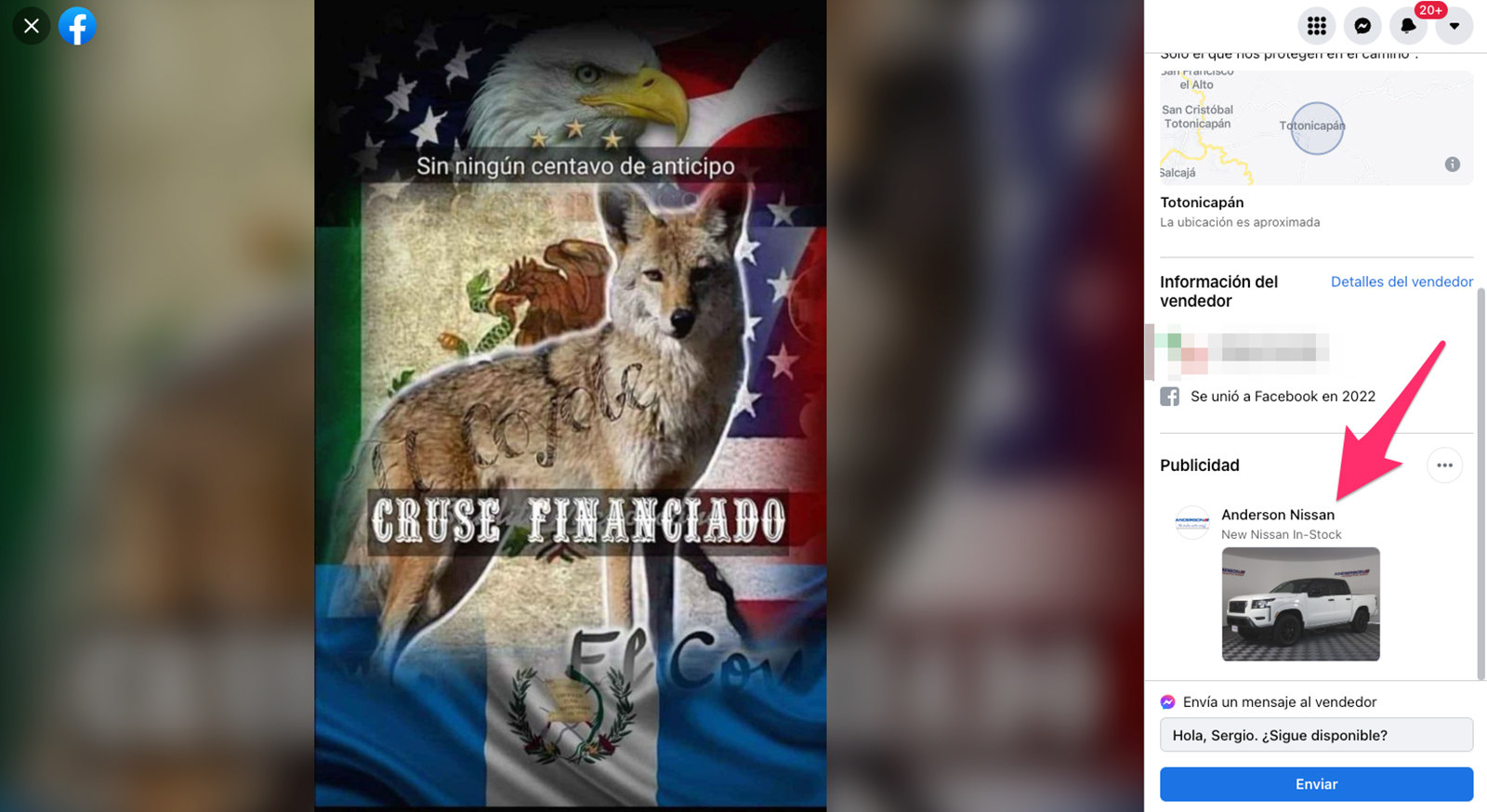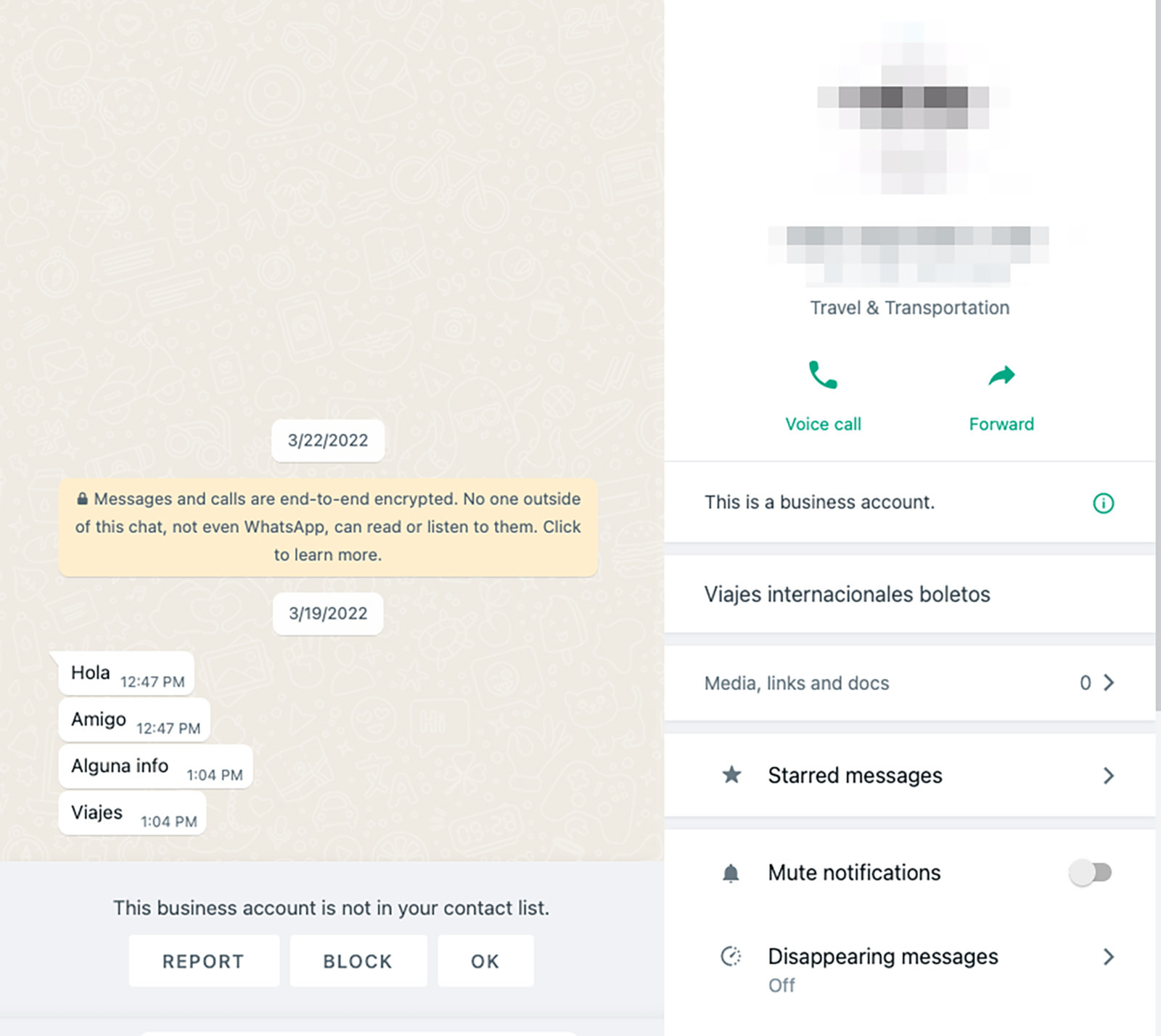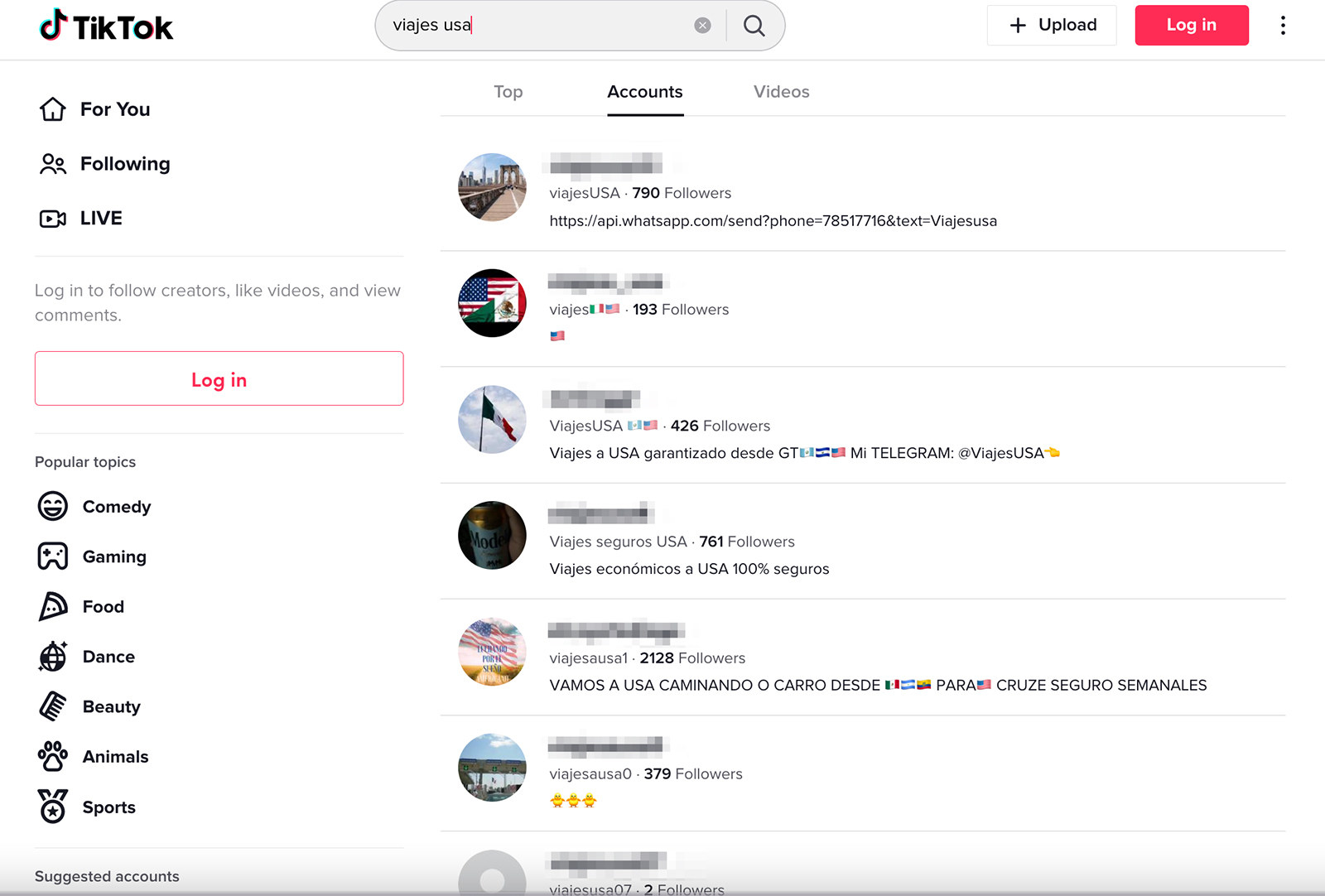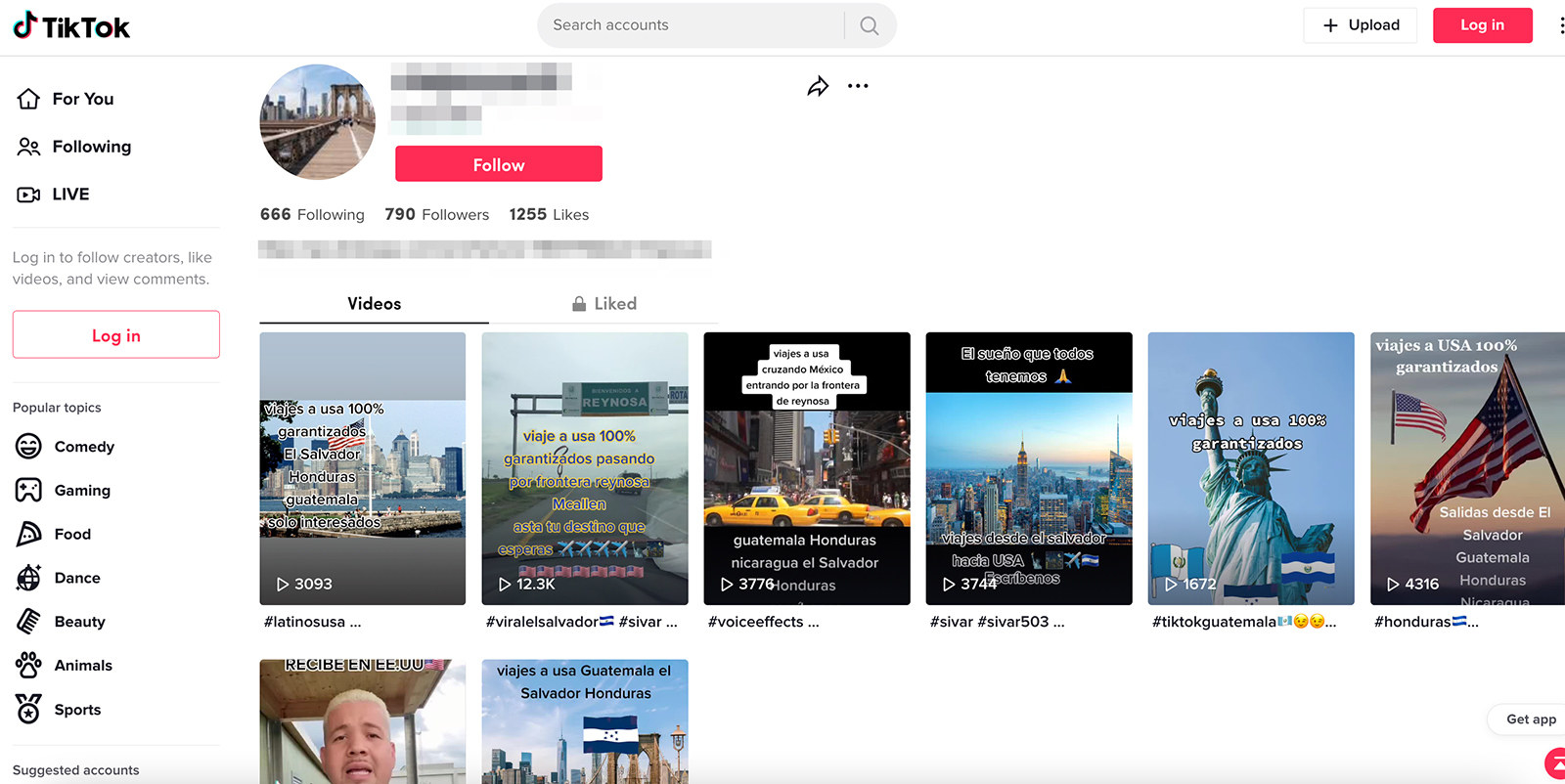
The classified ads often feature the US flag and other “land of the free” imagery, luring desperate immigrants with the promise of safe passage across the southern border, where a better life and job opportunities await.
But for all too many immigrants, these listings are little more than scams, which have spread on Facebook Marketplace as the platform’s parent company, Meta, makes a profit.
The Tech Transparency Project found that human smugglers advertise their services on Facebook Marketplace and in local buy-sell groups, with third-party ads for bona fide businesses embedded within the posts that allow Facebook to make money every time a potential immigrant looks for smuggling services on the platform. Some of the listings even featured an ad for a scholarship run by Meta.
The findings were published in a report released Thursday that was first obtained by BuzzFeed News.
"The company has found a way to profit from failing to address its policy on human smuggling," said Katie Paul, director of TTP. "It raises a lot of questions about the platform's willingness to deal with offers of smuggling across the platform because it is profiting from them."
This is despite the company's human exploitation policy, which states that smuggling, even when it doesn't involve coercion or force, "may still result in the exploitation of vulnerable individuals who are trying to leave their country of origin, often in pursuit of a better life."

It also raises a lot of questions about Facebook's ability to moderate the overall content on Marketplace because researchers only focus on human smuggling, which makes up only a fraction of the platform, Paul said.
In a statement, Meta said the company prohibits the use of its platform to offer human smuggling services.
“We prohibit the use of our platform to provide or offer human smuggling and work closely with experts and NGOs to inform our policies and support educational initiatives to prevent harm," Meta said. "TTP didn’t share their findings with us before sharing it with the press, but we will review the report when we see it and continue to quickly remove content that breaks our rules."
Ashley Settle, a spokesperson for Facebook, said the ability of third-party ads embedded in Marketplace listings to make revenue depends on their format. Some are based on how often someone sees it, while others generate income based on how often users click on a link that takes people to the advertiser's site. Settle said Facebook couldn’t immediately comment on whether the ad examples in the TTP report or others provided by BuzzFeed News generated revenue.
While researchers say it’s hard to peg an exact number of people affected, the social media company has come under criticism in the past for not doing enough to stop the spread of misinformation, hate speech, and calls for violence. In August, the Washington Post reported that Facebook profited off of ads it runs on searches referencing white nationalism.

The use of Facebook to market unauthorized border crossing services by smugglers has also been noted by TTP in past reports. The tech transparency group has also issued findings on how human smugglers often misrepresent conditions along the journey, immigration policies, and opportunities in the US. The latest report looked into WhatsApp and TikTok and further delved into smugglers' use of Facebook to reach potential immigrants, noting that Meta profits from their listings.
As part of a survey of more than 200 immigrants this spring, TTP analysts joined and followed their social media sources, including groups, pages, and chats. The organization found that smugglers, also commonly referred to as coyotes, take advantage of the online tools social media platforms provide to attract potential immigrants who want to make it to the US.
"In this way, the coyotes can reach people before they have even decided for certain that they will migrate, and give them the false impression that arranging a trip to the US is as easy as ordering household products online," the report states.
Some listings on Facebook Marketplace and local buy-sell groups openly advertise smuggling services in the listing title or in tags. Other classified ads, referred to by Facebook as Marketplace listings, publicize trips to the US alongside photos of the border fence or animal coyotes. Would-be immigrants can quickly contact the person who posted the classified ad using an embedded message feature or click on embedded WhatsApp links.

In the case of a Guatemalan man who was trying to leave his country, TTP researchers found that a potential smuggler's account on a local buy-sell group had posted dozens of classified ads in similar groups across the country. While some listings may come from actual human smugglers that could get immigrants into the US, some are scams or misrepresent the dangers of trying to cross undetected.
The listings not only promised “safe and financed” trips to the US, but also pledged to connect potential immigrants with jobs once they arrived. Some commenters on these classified ads, though, pointed out that they were likely a scam. “Be very careful, those who offer your work on face are kidnappers,” one commenter wrote.
Kidnapping immigrants and asylum-seekers has become a profitable business for cartels, which hold them for ransom until their families pay — in fact, the person who kidnapped them could be the same smuggler they’d hired to help them cross the border. Immigrants are also in danger of being killed, assaulted, and raped while on their journeys.
In other cases, undocumented immigrants have been abandoned in the desert or locked in tractor-trailers during high temperatures. In what appears to be the deadliest human smuggling incident in US history, 53 immigrants died in a sweltering tractor-trailer on the outskirts of San Antonio in June.
Meta said its community standards allow people to use Facebook to solicit human smugglers or provide information on how to cross borders because preventing it could make it difficult for people to seek protection from conflict, oppression, and other unsafe conditions.
"Our approach to our policy on human smuggling keeps international law and human rights standards clearly in mind," Meta said.
However, it can be difficult for immigrants to determine who is a legitimate smuggler and who is trying to scam them.
“Previously I traveled alone and I relied on a Facebook account for support, but they cheated me," one immigrant told TTP. "[That account] only exists to scam people."

TTP accused social media platforms of not doing enough to protect immigrants from scammers. Instead, Facebook, WhatsApp, and TikTok provide impostors with the tools to scam vulnerable people.
"There are no real repercussions for the company continuing to profit from and facilitate this type of harm," Paul said.
Some of the Facebook classified ads for smuggling services encourage users to contact the poster on WhatsApp. In addition to phone numbers, some of the listings include custom links that automatically launch a private WhatsApp chat. TTP said WhatsApp messages are direct, encrypted communications, making it difficult to identify and track bad actors.
During the course of its investigation, TTP's test WhatsApp account, which never sent messages to any other users, received direct messages from people appearing to offer human smuggling services. Some of the WhatsApp users who made the unsolicited offers were business accounts that allowed them to send messages to a large number of people, advertise products and services in a "catalog," and post cross-platform listings with custom links that launch a WhatsApp chat with the seller, the report states.

TikTok prohibits posts promoting human smuggling, but users are still able to upload videos advertising their services that can be found by searching "viajes USA" or "USA trips." One video has footage of someone driving into the US through a land port of entry that offered a safe trip by car and onscreen text reading "I'll help you reach your American dream."
"TikTok strictly prohibits content that seeks to promote or facilitate criminal activities, including smuggling, which we would remove from our platform," said the company in a statement.
Despite the scope of Facebook Marketplace and WhatsApp, Paul said it's possible for Meta to stop the spread of human smuggling listings.
"They make billions of dollars every year," Paul said. "They have the experience, the finances, and resources to address these problems and they have people who have come up with solutions to effectively moderate content."
